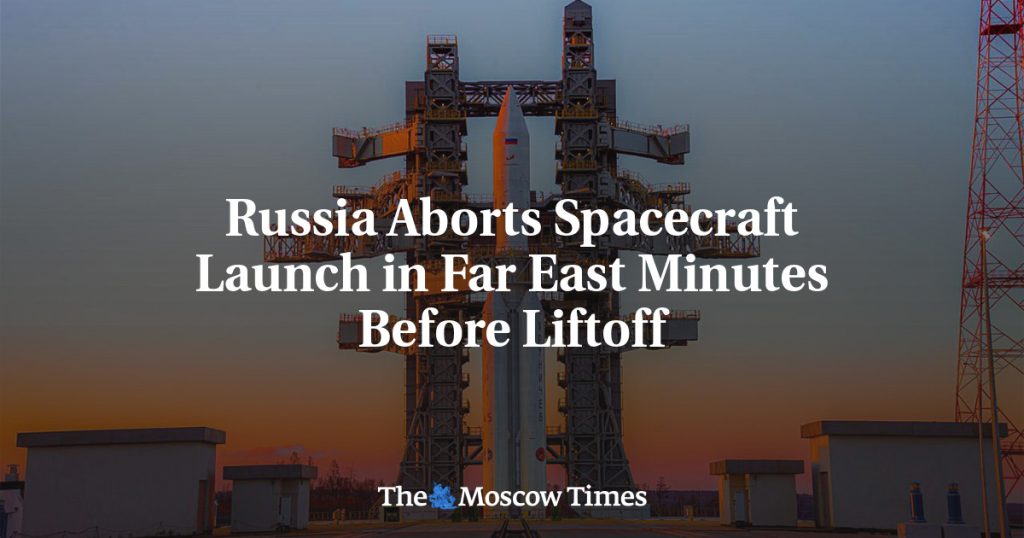Russia experienced a delay in the test launch of its Angara A5 space rocket from the Vostochny Cosmodrome, which was aborted just two minutes before liftoff. This marked the second instance of a disrupted Russian space flight in less than a month. The flight controller issued an “abort launch” command and ordered a 24-hour shutdown without providing a reason for the delay. The Angara A5 rocket, designed for heavy-lift capabilities, was set to launch for the first time from the Vostochny spaceport in the Far East of Russia’s Amur region, having previously launched from the Plesetsk Cosmodrome in Northern Russia.
President Vladimir Putin has highlighted the national security importance of the Angara rocket, which was developed in response to concerns regarding potential component delivery restrictions from an independent Ukraine following the dissolution of the Soviet Union. The Angara A5 is intended to replace Russia’s Proton launcher. Despite its significance, the Angara project has faced multiple delays and technical setbacks. Additionally, Roscosmos has emphasized the rocket’s environmentally friendly design, as it does not rely on aggressive and toxic propellants which could harm ecosystems near launch sites and drop zones.
The recent delay in the Angara A5 rocket launch follows another postponement in Russia’s space program involving the launch of the Soyuz MS-25 spacecraft to the International Space Station from the Baikonur Cosmodrome in Kazakhstan. This delay was attributed to a “voltage dip” in a chemical power source during the final pre-launch preparations. These setbacks highlight the challenges faced by Russia’s space program, which has been hampered by financial issues, scandals, and corruption in recent years. Despite these obstacles, Russia continues to pursue advancements in its space exploration capabilities through projects like the Angara A5 rocket.
The significance of the Angara A5 rocket extends beyond its technological capabilities to its broader geopolitical implications. With President Putin advocating for the rocket’s importance in national security, the successful deployment of the Angara rocket from the Vostochny Cosmodrome is crucial for Russia’s space ambitions. The aborted launch underscores the challenges faced by Russia in maintaining its position as a key player in the international space arena. By prioritizing the development of environmentally friendly and technologically advanced rockets like the Angara A5, Russia aims to solidify its standing in space exploration.
The delays experienced by the Angara A5 rocket’s test launch also shed light on the complexities of coordinating space missions involving multiple countries and international partners. Russia’s collaboration with other nations, such as Kazakhstan in the Baikonur Cosmodrome launch, highlights the interconnected nature of space exploration efforts. Overcoming technical hurdles and ensuring the smooth execution of space missions require close collaboration and communication among all stakeholders involved. Despite setbacks, the global space community remains committed to advancing scientific knowledge and exploration beyond Earth’s atmosphere.
In conclusion, Russia’s aborted Angara A5 rocket launch reflects the challenges faced by the country’s space program, which has been impacted by financial constraints, technical difficulties, and geopolitical considerations. The delays in recent space missions underscore the complexities of conducting successful launches and maintaining a prominent position in space exploration. Despite setbacks, Russia continues to invest in advanced space technologies like the Angara A5 rocket to further its space ambitions and contribute to international collaboration in the pursuit of scientific discovery beyond Earth.


